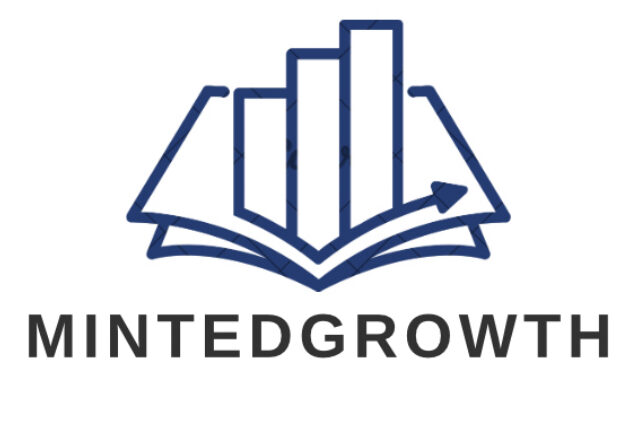Starting your very first resume can feel intimidating, especially when you don’t have a long list of jobs to put down. But here’s the good news, you don’t need years of work history to create a strong resume that gets noticed. A resume is not only about job titles, it’s about showing potential employers that you have valuable skills, motivation, and the ability to learn quickly.
In fact, some of the best entry level resume examples come from people who had no formal experience but knew how to highlight their strengths. Whether you’re a student, a recent graduate, or someone changing careers, there are resume tips no experience job seekers can use to stand out. This guide will walk you through practical steps, from building a skills based resume to adding accomplishments you might not even realize you have.
.
How to make a resume for the first job
Let’s start with the essentials.
.
1. Highlight Transferable Skills
When you don’t have direct work history, your skills become the star of your resume. Think about the abilities you’ve gained through school, volunteering, internships, or even hobbies. Communication, teamwork, organization, time management, problem-solving, and adaptability are all highly valued by employers.
For example, if you worked on group projects at school, that demonstrates collaboration. If you managed your school’s social media page, that shows digital skills and responsibility. Recruiters want to know you can contribute, and by listing transferable skills in a clear way, you make your entry level resume more powerful.
To give your skills extra impact, use action words like managed, created, organized, or assisted. This helps you show instead of just tell. According to the National Association of Colleges and Employers, communication and problem-solving rank among the most desirable abilities for entry level hires, so highlighting them can make a real difference.
.
2. Use a Functional Resume Format
If you have little or no job experience, the traditional chronological format may not work in your favor. Instead, consider a functional resume format. This style puts your skills and strengths at the top, while work history moves to the bottom or is kept brief.
A functional resume focuses on what you can do, not just what you’ve done. This is ideal for resume tips no experience candidates can follow. For instance, you might create sections like “Technical Skills,” “Leadership Experience,” or “Academic Achievements.” This gives structure to your resume while drawing attention to your best qualities.
Employers scanning resumes often spend less than 10 seconds on the first read. That’s why a functional layout helps because it directs attention to the areas that matter most. Sites like Indeed’s Career Guide recommend this approach for students and beginners.
.
3. Add Volunteer and Extracurricular Experience
Just because you weren’t paid doesn’t mean your experience doesn’t count. Volunteer work, extracurricular activities, or even family responsibilities can show responsibility and initiative. If you volunteered at a local event, tutored classmates, or organized a fundraiser, these all demonstrate real-world skills employers value.
For example, someone who led a community clean-up project can highlight leadership and project management. A student who served on a school committee can showcase teamwork and organizational skills. These are excellent building blocks for an entry level resume.
In fact, The Balance Careers notes that adding volunteer experience is one of the top ways to fill a resume with no experience. Employers like to see commitment and initiative, even outside of formal jobs.
.
4. Emphasize Education and Coursework
When you don’t have much job history, your education can help fill the gap. If you’re a student or recent graduate, list your school, degree, expected graduation date, and relevant coursework. Courses related to communication, business, technology, or leadership can strengthen your resume by showing that you’ve gained applicable knowledge.
For example, someone applying for a marketing internship could highlight classes like “Digital Media Strategy” or “Consumer Behavior.” This immediately shows the employer that you have a foundation, even if you haven’t yet worked professionally in that area.
If you received honors, scholarships, or awards, don’t be shy about including them. They show dedication and achievement. According to Monster.com, employers respect academic achievements, especially for entry level resumes.
.
5. Craft a Strong Resume Objective
A resume objective is a short statement at the top of your resume that explains your career goals and why you’d be a good fit for the role. This is particularly helpful for job seekers with no experience, because it allows you to highlight enthusiasm, motivation, and transferable skills right away.
Instead of writing something generic like “Looking for a job to gain experience,” be specific. For example:
“Motivated business student seeking an entry level role in marketing where I can apply my communication skills, social media knowledge, and creativity to contribute to a growing team.”
This kind of statement quickly shows value and focus. It’s one of the most effective resume tips no experience applicants can apply, and it gives employers a snapshot of who you are. CareerOneStop suggests tailoring your objective to each job to show genuine interest.
.
6. Showcase Achievements Outside of Work
Achievements don’t always come from jobs. They can come from school projects, sports, clubs, competitions, or even personal goals. Employers want to see that you’re driven and capable of accomplishing things, even without formal work experience.
For instance, if you captained a sports team, you can highlight leadership, discipline, and teamwork. If you built a website as a side project, that demonstrates initiative and technical ability. Even completing a large research paper can be framed as project management experience.
Highlighting achievements helps you build credibility. It turns your entry level resume into more than just a list of schools and activities, it shows results. Sites like TopResume emphasize that accomplishments can often say more than job titles, especially when you’re starting out.
.
7. Include Internships or Job Shadowing
Even short-term internships or job shadowing experiences count as professional exposure. They show initiative, willingness to learn, and give you something concrete to include on your entry level resume. If you spent a summer helping at a local office, shadowed a professional for a week, or assisted a small business, add it to your experience section.
Make sure to describe what you did and the skills you learned, even if the tasks seem basic. For example, helping with filing or data entry can translate into organizational skills, attention to detail, and basic computer proficiency.
This experience doesn’t need to be lengthy to matter. Recruiters often look for signs of commitment and curiosity in beginners, and even a short internship demonstrates both.
.
8. Add Certifications and Online Learning
Today, you don’t have to wait until you land a job to start building skills. Online platforms like Coursera, LinkedIn Learning, and Google’s Career Certificates offer courses that strengthen your resume. Adding certifications shows employers that you’re proactive about self-development.
For example, if you’re applying for an entry level IT position, listing a Google IT Support certificate immediately signals competence. If you’re interested in marketing, a short course in SEO or social media management makes your resume stronger.
Certifications don’t need to be advanced, they just need to align with the job you want. A hiring manager will see that you’ve already taken steps to grow, which makes you a more attractive candidate.
.
9. Tailor Each Resume to the Job Posting
One of the biggest mistakes beginners make is using the same resume for every application. Employers can easily tell when a resume is generic. Instead, adjust your resume to match the job description.
Start by looking at the keywords in the job posting. If the role emphasizes teamwork, leadership, or technical skills, make sure those words appear naturally in your resume. This also helps your application get past Applicant Tracking Systems (ATS), which scan resumes for relevant keywords.
Tailoring your resume doesn’t mean rewriting it completely, it means small adjustments that make your skills and goals align better with the job. This strategy is one of the most practical resume tips no experience applicants can use to stand out.
.
10. Keep Your Resume Clean and Easy to Read
When you’re just starting out, it might feel tempting to add everything you can think of to make your resume look “full.” But in reality, simplicity wins. A clean, well-formatted resume is easier for hiring managers to scan, and it gives the impression that you’re organized.
Stick to one page, use clear headings, and choose a simple font like Arial or Calibri. Keep margins balanced, use bullet points sparingly, and make sure there’s enough white space so the document doesn’t feel crowded.
Remember, employers often look at dozens of resumes in one sitting. A clear, professional layout makes yours more likely to be read carefully, which is especially important for an entry level resume.
.
11. Write with Action-Oriented Language
The words you choose matter. Instead of using vague phrases like “responsible for” or “helped with,” choose action verbs that demonstrate results. Words like organized, managed, developed, created, assisted, coordinated, and supported show initiative and contribution.
For example, instead of writing “Helped with a school fundraiser,” you could write “Organized fundraising event that raised $2,000 for student activities.” This small change makes your achievements sound stronger and more professional.
Even if your experience comes from volunteer work, projects, or clubs, action-oriented language transforms it into something more impressive. It’s one of the simplest resume tips no experience candidates can apply right away.
.
12. Balance Professionalism with Personality
Your resume should be professional, but that doesn’t mean it has to feel stiff or lifeless. Employers like to see a glimpse of your personality, as long as it’s appropriate for the role.
For instance, if you’re applying for a creative role, you might include a brief section on creative projects or hobbies, such as photography, blogging, or design. If you’re aiming for a customer service position, showcasing activities that involve communication or teamwork adds value.
Adding personality helps employers see you as a well-rounded candidate. It’s not about including every hobby, but choosing a few that reflect qualities relevant to the workplace. This balance keeps your entry level resume memorable while still professional.
.
13. Use a Resume Summary Instead of a Cover Letter When Needed
Sometimes entry level roles don’t ask for a cover letter. In those cases, your resume summary becomes even more important. Unlike a resume objective that focuses on your goals, a summary highlights what you already bring to the table.
For example:
“Energetic recent graduate with strong communication and teamwork skills, seeking to apply leadership and organizational abilities to an entry level administrative role.”
This approach works especially well for people with little or no job history, because it frames your abilities in a way that shows value right away. Hiring managers scanning quickly can get a sense of your potential without needing extra documents.
.
14. Quantify Achievements Wherever Possible
Numbers help your resume stand out. Even small achievements can sound impressive when quantified. Instead of saying “Planned school event,” you might say “Coordinated school event with 50 participants.” If you raised money, managed a group, or completed a project ahead of schedule, put the numbers in.
Quantifying results makes your experience more credible and concrete. It also gives employers a sense of scale, showing how you made an impact. This technique is one of the best resume tips no experience job seekers can use, because it turns everyday tasks into measurable accomplishments.
.
15. Don’t Overload With Irrelevant Information
When you’re trying to fill space, it can be tempting to list every detail of your background, but irrelevant information can weaken your resume. For example, if you’re applying for an office role, listing your entire sports history isn’t necessary. Instead, choose details that connect to the skills needed for the job.
Think of your resume like a snapshot of your best qualities, not your full autobiography. Keep the focus on transferable skills, education, achievements, and experiences that show you’re ready for an entry level role. By trimming out the extras, you ensure the most important details shine through.
.
16. Include Relevant Keywords for Applicant Tracking Systems (ATS)
Many companies use software called Applicant Tracking Systems to screen resumes before a human ever sees them. These systems look for keywords that match the job posting. If your resume doesn’t include those keywords, it might get filtered out.
That’s why tailoring your resume to include specific terms is so important. For example, if the job posting mentions “customer support” or “data entry,” make sure those words appear in your resume naturally. This doesn’t mean stuffing your document with buzzwords, it means aligning your skills and experiences with the language the employer uses.
By doing this, your resume has a better chance of passing through ATS filters and landing in front of a real recruiter.
.
17. Keep Experience Order Relevant, Not Just Chronological
If you’ve held part-time jobs, internships, or even volunteer positions, think carefully about how you present them. While chronological order is standard, it’s not always the best approach when you don’t have much experience.
Instead, you can group experiences by relevance. For instance, you might have a section called “Leadership Experience” where you include your role as team captain, club president, or project leader, even if those roles weren’t your most recent.
This way, the hiring manager sees the most valuable parts of your background first, rather than a simple timeline that may not highlight your strengths.
.
18. Show Willingness to Learn and Grow
One of the most appealing qualities in an entry level candidate is a willingness to learn. Employers understand that you might not know everything yet, but they want to see that you’re eager to grow.
You can reflect this in your resume by emphasizing training you’ve completed, skills you’re currently developing, or even mentioning interests in professional growth. A line like “Currently building proficiency in Excel and project management tools” shows initiative and motivation.
By positioning yourself as someone ready to learn, you make up for what you lack in direct experience. This mindset is often just as important as technical skills, and it reassures employers that hiring you is a smart long-term investment.
.
19. Leverage Extracurricular Activities
If you’ve been active in clubs, sports, or student organizations, these can strengthen your resume. Extracurricular activities often build leadership, teamwork, time management, and organizational skills. Even if they aren’t directly related to the job, they show that you’ve practiced qualities employers value.
For example, being part of a debate club highlights communication and critical thinking. Playing on a sports team demonstrates discipline and collaboration. These experiences give you a chance to showcase soft skills that are sometimes more important than technical abilities for entry level roles.
.
20. Use a Combination of Hard and Soft Skills
When building a resume with no experience, balance matters. Employers look for both hard skills (technical abilities like Excel, coding, or writing) and soft skills (communication, adaptability, teamwork). Listing both shows you’re a well-rounded candidate.
Hard skills can be added under a “Technical Skills” section, while soft skills can be demonstrated in your bullet points. For instance:
• Designed presentations using PowerPoint (hard skill)
• Collaborated with classmates to deliver a group project on time (soft skill)
This mix ensures your entry level resume appeals to hiring managers who value practical knowledge and interpersonal qualities.
.
21. Keep Contact Information Professional
It may sound simple, but your contact details can set the tone. Use a professional email address that includes your name, not nicknames or random numbers. Double-check your phone number, city, and LinkedIn profile link (if available) to make sure everything is accurate.
An unprofessional email like “partyguy99@email.com” can create the wrong impression, while something like “john.smith@email.com” looks polished. This tiny detail can affect how seriously employers view your application, so it’s worth the attention.
.
22. Add a Skills Section That Stands Out
Your skills section is one of the most important parts of an entry level resume, because it gives employers a quick look at what you can bring to the role. Since you may not have extensive job experience, this section helps you show that you’re prepared with practical abilities.
Divide your skills into two types: technical skills and soft skills. Technical skills might include computer programs, languages, or industry-specific tools you’ve learned. Soft skills could be communication, problem-solving, teamwork, or adaptability.
For example, instead of just listing “Microsoft Office,” you can say “Proficient in Microsoft Word, Excel, and PowerPoint.”Instead of just “teamwork,” you might write “Collaborated with peers to complete group projects on time and effectively.”This shows both competence and context.
A strong skills section ensures that even if the rest of your resume is light on experience, recruiters immediately see practical strengths that can transfer to their workplace.
.
23. Use Extracurricular Leadership Roles to Your Advantage
Leadership doesn’t only come from paid jobs — many people first build leadership qualities through extracurricular activities. If you’ve ever been a captain of a sports team, president of a club, or organizer of a school event, that’s leadership experience worth putting on your resume.
Employers value leadership because it shows you can take responsibility, guide others, and complete tasks under pressure. For example, if you served as a treasurer in a student organization, that role highlights financial responsibility and organizational skills. If you led a team project in class, it demonstrates initiative and collaboration.
When adding these roles, don’t just list the title — describe what you achieved. For instance: “Led a five-person team to plan and execute a charity event that raised $1,000.” These details show employers that you’re not only capable of participating but also of taking charge.
.
24. Keep Your Resume Concise and Targeted
One of the biggest mistakes people with no experience make is trying to overcompensate by cramming too much information into their resume. Instead, aim to keep it focused and concise. For most entry level resumes, one page is enough.
A short, targeted resume is more effective than a cluttered one. It signals that you know how to prioritize and present information clearly — a skill employers appreciate. Focus on including only what is relevant to the role you want, such as skills, education, volunteer work, achievements, and extracurricular activities.
Recruiters don’t expect a beginner to have endless experience, so don’t feel pressured to fill the page with irrelevant details. A well-organized single page that tells your story with clarity and confidence will work in your favor.
Recommended reading
.
Frequently Asked Questions
Below are answers to common questions about how to write a resume with no experience that you may be interested in.
.
What do you put on a resume when you have no experience?
If you are building a resume without traditional work experience, the best approach is to highlight what you do have instead of focusing on what you lack. Start with a strong summary statement that communicates your enthusiasm and goals. Next, include transferable skills, academic achievements, volunteer experience, and personal projects. For instance, organizing a school fundraiser demonstrates leadership and project management skills, while creating a blog shows writing and digital skills. Employers understand that entry level resume applicants may not have years of experience, so presenting these accomplishments with confidence shows that you’re ready to contribute.
.
How do you write a first resume for beginners?
Writing your first resume may feel intimidating, but breaking it into sections makes the process easier. Begin with your contact information and a concise summary or objective statement. From there, focus on your education, relevant coursework, and any extracurricular activities that demonstrate responsibility. Even part-time jobs, babysitting, or helping with family businesses can count as experience. The key is to frame these activities in professional language. For example, instead of saying “helped at family store,” you might write “assisted with customer service, cash handling, and daily operations.” These subtle changes make your first resume stand out while keeping it beginner-friendly.
.
What is the best format for a resume with no experience?
For someone starting out, the functional resume format often works best. This format emphasizes skills and abilities rather than a strict timeline of work history. It allows you to group transferable skills into categories like “Communication,” “Problem-Solving,” or “Technical Skills.” Beneath each skill, you can add examples of how you’ve demonstrated them in school, volunteering, or personal projects. If you prefer, a combination resume format also works well, as it balances skills with some chronological experience. The most important thing is that your format is clean, easy to read, and tailored to entry level resume expectations in your country.
.
Should I include a photo on my resume?
This depends largely on where you’re applying. In the United States, Canada, and the UK, it’s standard not to include a photo on your resume. Employers in these countries prefer to focus on skills and qualifications to avoid unconscious bias in hiring. However, in some European and Asian countries, a photo is often expected. If you’re unsure, research resume standards for the country where you’re applying. Unless you are applying for roles where your appearance is directly relevant, like acting or modeling, it’s safest to leave the photo off. Instead, let your skills, education, and accomplishments do the talking.
.
What should I write as an objective for a resume with no experience?
Your resume objective is your chance to make a strong first impression, even if you lack formal job history. A good objective should be short, specific, and focused on what you can offer. For example: “Motivated student seeking an entry-level marketing position to apply communication and social media skills while gaining hands-on experience.”Another option is: “Recent graduate eager to contribute organizational skills and problem-solving abilities to a dynamic team environment.” Using an objective like this shows hiring managers that you’ve thought about your goals and that you’re serious about growing with their company.
.
How many pages should a beginner resume be?
For most entry-level candidates, a one-page resume is ideal. Recruiters often spend only a few seconds scanning each application, so keeping your resume concise makes it easier for them to find what they need quickly. A single page forces you to prioritize the most important details, such as education, transferable skills, and relevant activities. That said, if you’ve had extensive volunteer experience, projects, or certifications worth mentioning, stretching to two pages is acceptable — but only if the content is truly relevant. Remember, clarity and quality matter more than quantity when applying with a resume tips no experience approach.
.
How to Write a Resume With No Experience — summary
I hope you enjoyed my article on how to write a resume with no experience. Crafting a resume without traditional work history may feel overwhelming at first, but it’s entirely possible to create a strong application that captures attention. By focusing on your transferable skills, education, volunteer work, and personal projects, you show employers that you have the drive and ability to learn on the job.
Remember that the way you present your story matters just as much as the content itself. A clean format, a confident objective, and carefully chosen details can make your entry level resume stand out even against more experienced candidates. Every professional started somewhere, and this is your opportunity to position yourself as motivated, adaptable, and ready for growth.
As you refine your resume, keep tailoring it to the job description, highlighting what makes you a great fit. Pairing these resume tips no experience with persistence in your job search will open doors faster than you might expect. Your first role is just the beginning — so treat your resume as a living document you’ll continue to improve as your career grows.




Pingback: Job Search Tips For A Tight Market: Apply Smarter, Not Harder